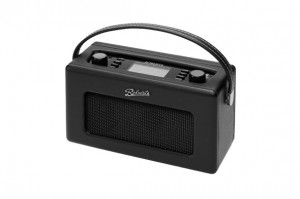Apple has announced ‘iTunes Radio’. It’ll be joining the likes of Last.fm, Pandora, Spotify, MySpace and so on in trying to feed you a diet of music tailored to your tastes.
After it was announced, I saw a large number of comments on Twitter and Facebook from radio types along the lines of “someone should tell them it’s not actually RADIO”, “the word radio should only be used for actual radio!” and “save the word radio!”.
It reminded me of a blog post from James Cridland a couple of years back where he argued strongly that Pandora, a streaming music service in the US (which Pandora calls ‘internet radio’), was not radio.
By actively incorporating the term into the name of an on-demand music streaming service, is Apple undermining the sanctity of the traditional radio industry? Should this rather fragile industry mount a collective trusty steed and ride out on a campaign to protect the traditional definition and meaning of the term ‘radio’?
I argue: no.
Times change; get over it.
The name ‘iTunes Radio’ can only contribute to consumers, over time, lumping together in their heads ‘traditional’ radio with on demand streaming services. While this, inevitably, can only be bad news for the radio industry, fighting that battle on the grounds of a single word is pointless. Not least because we would lose. For a start, the only reason people really care is because the on demand product is a threat to the industry regardless of what it’s called. Apple’s use of the term radio only adds to our fear and is a peg on which to hang it.
A battle not worth fighting
Secondly, it’s a pointless battle to fight because the radio industry could never win. Who is going to front the cash to take Apple to court in the hope that a judge defines a new legal framework which would require a product or service to have a certain specification before it is permitted to use the very broadly defined term ‘radio’? No-one, because it wouldn’t happen. Another reason no-one’s going to waste their limited cash doing that is because we know deep down that protecting the word wouldn’t really make much difference in the long run.

Imagine it happened tomorrow. Thanks to a court ruling against the likes of Apple you can now only use the term ‘radio’ if you’re broadcasting curated audio content in a linear format. In ten years’ time would Apple’s on-demand music service have withered and died? Of course not. Apple would be laughing all the way to the bank, with two fingers up at an industry that a decade ago believed that if their precious definition was retained, they would somehow have been far more powerful in the fight against the on demand personalised music-streaming model.
Language evolves
As well as the fact there’s little point in fighting a battle that can’t be won, we need to accept that language changes over time. Sad as it may seem to some, the term ‘radio’ will evolve and refer to a wider range of services in the future. If I were entering the same market as Apple is with this product, I would absolutely be sure to include the word radio, and I would strongly feel that I had every right to do so.
There is also the argument that online music services can already be defined as radio. Look at the Roberts iStream radio set (as one example). It’s an internet radio that doesn’t only stream online stations along with its FM and DAB modes, but also runs Last FM. If you flicked that on in the kitchen while you cooked your tea, I certainly wouldn’t correct you if when asked “what are you listening to?” you replied: “the radio”. Similarly I wouldn’t question that the person watching House of Cards on Netflix was “watching TV”. And what will you tell me you’re doing when you’re watching the last hour of the Radio 1 Chart Show?
So I say let’s not waste our energy getting upset at new technology that weakens the traditional definition of radio. After all, with the radio industry shifting some focus to social media, online activity and the ever-increasing presence of visualisation, who’s to say that before too long a lot of our own work will fall foul of a more traditional definition of radio?










